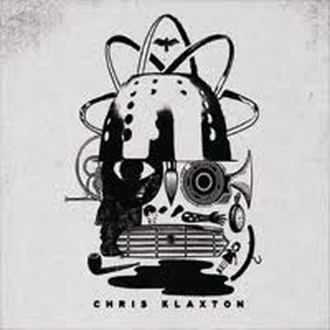
This is the scene with Chris Klaxton and his art. In the liner notes, Klaxton dedicates the album “to one gone too soon; artist and lyricist Cody Laplante.”
In his debut album, Starcode, Klaxton posed the questions of existence following the loss of Laplante, with whom he shared so much. Now, in Collage, he discusses the ramifications and possibilities within those questions. The discussion is painful. Sometimes haunting, sometimes harrowing, always revealing.
With Christ Klaxton (trumpet) is Mike Effenberger (Rhodes), Tim Jago (guitar), Taylor O’Donnell (vocals), Mark Small (tenor sax), Kendall Moore (trombone), Sam Weber (bass) and Michael Piolet (drums). Klaxton is a firm believer in letting “the band do what they do best.” He points the direction and lets them find their way to the destination. These trusted musicians do not fail.
The album opens with Arise Automaton. It conjures the scene from Fritz Lang’s Metropolis. The industrial sounds behind Tim Jago’s guitar is a willful attempt to escape from emotion while revealing the deep emotion of loss. Klaxton’s trumpet and Mark Small’s tenor sax create a choral cacophony as Taylor O’Donnell’s ethereal vocals soar above. Order emerges and a melodic expression asserts itself. The development of the piece is fascinating.
Love Gone Wild is written by Klaxton with lyrics by the late Cody Laplante. Taylor O’Donnell is the vocalist and delivers an agonizing lament of uncommitted attraction. Klaxton’s trumpet is soulful and more deflective than reflective. Weber and Piolet provide a warm rhythm backdrop to a piece that is riddled with questions without answers.
Klaxton shows he can swing with Wampus. Small’s tenor sax gets a sweet extended solo and the bass and drums drive the whole effort with determination. Weber’s bass work deserves special attention. It is tightly melodic with full stops that catch your breath.
Don’t All Go at Once, Part 1 is a touching piece. The right chord change can just break your heart and Klaxton creates a minefield of them. The sax is mournful and is supplanted by Effenberger’s Rhodes and Jago’s guitar. The guitar offers a tug of hope and fond remembrance but is lost in a fog of loss.
Sam Weber’s bowed bass opens Touch and Go. The horns pierce the darkness with slow stabs of emotion. The bass against high-pitched horns sounds like Japanese Noh vocalizations. The rhythm anchors the piece as the horns pull against the restraints of the bass and drums.
Rainforest Tortoise opens with the tight groove below the melodic lines carried by horns and vocals. It has to be said that Taylor O’Donnell’s vocals add a breadth and aspect that is remarkable. The guitar and sax fashion a beautifully cohesive sound that is eventually bisected by the Klaxton trumpet. The groove smokes and the melody is enthralling. This was a standout piece.
She Loved a Good Story follows. This may be Klaxton’s most intensely lyrical yet. He and Moore’s trombone beautifully carry the melody between them in the early phase of the track. Piolet’s heavy, plodding toms with the swirling cymbals is a cool study in contrast. Weber’s bass throbs alongside. Effenberger’s Rhodes provides a few bright tones but the horns carry the narrative of this absorbing tale.
Don’t All Go at Once, Part 2 seeks release from its nightmare as sax, guitar and Rhodes create a slightly more upbeat and melodic vision. The melody is haunting and lovely bit in the opening sections but gains an optimistic ascendancy in the closing moments. A riveting piece altogether.
The horns pop and the rhythm section nails the groove in Jumprope. It is—dare we say—playful. Klaxton is colorful and bright and the staccato drums, horns and vocals are like the feet of children rising and falling in the exercise required of all children…and boxers. Once again, an unexpected chord change lifts the whole piece in its closing moments.
Is Jumprope acceptance? Is it hope? Is it resolution of all that has gone before? Perhaps it is all of those. Or none of those. You decide.
There is a bonus track, the Remix of Fictional Friends. Rain performs the remix and it is brilliant. The original by Klaxton, Laplante and Moe Popel is offered in remix as a tribute.
Collage is a fitting title. Klaxton arranges snippets of sound, all composed by himself, in appropriate order and creates a sum greater than its individual parts. The various styles and structures are expressions of Klaxton’s individual artistry and the influences upon him. It is the kaleidoscope of memory caught in a mist of remorse. Somehow Klaxton creates beauty out of grief.
~Travis Rogers, Jr. is the Jazz Owl
 RSS Feed
RSS Feed
